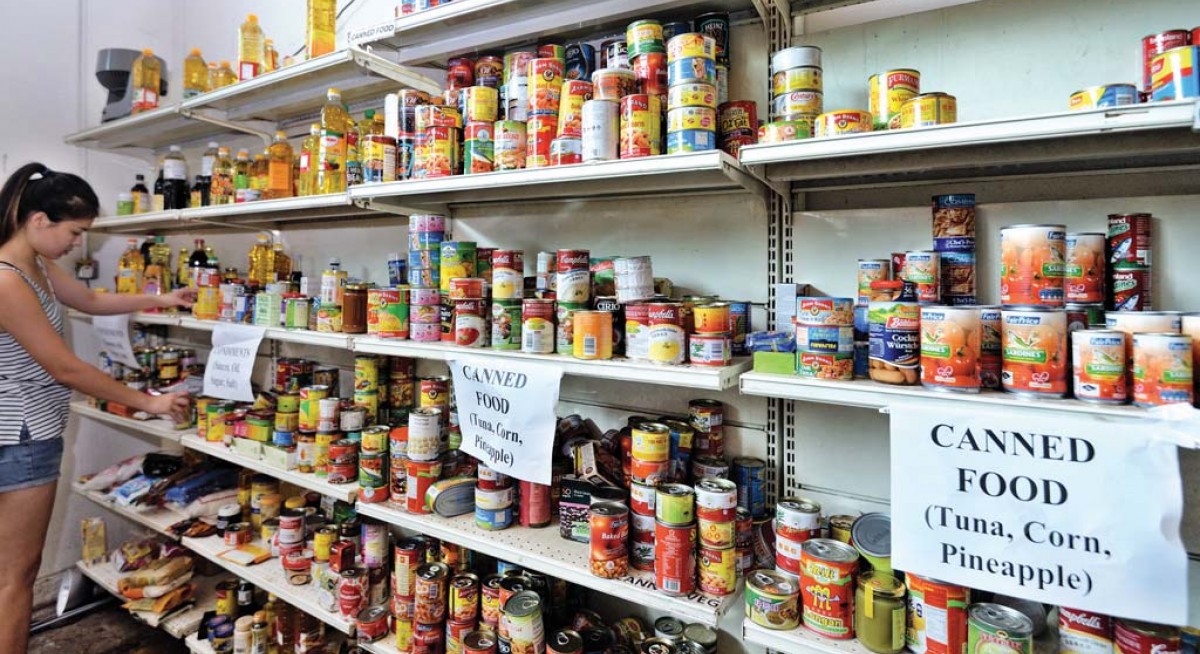Yet, in a recent survey of low-income households and food aid organisations, the Lien Centre for Social Innovation found that a significant number of households in Singapore experienced what is termed as severe food insecurity, meaning that they skipped meals or experienced hunger. A number of others had moderate food insecurity, indicating that they had to compromise on the quality and variety of food they had. Fresh produce, for one, tends to be a luxury.
To be sure, there are many food aid organisations that provide either cooked meals or dry foodstuff to a large number of low-income households in Singapore. But there are households that end up being overlooked, because they either have not applied for help or do not live in the obviously low-income estates that social workers typically visit.
At the same time, food insecurity is not tied only to income levels. Lien Centre researchers found it was also linked to time and health constraints.
In some cases, the efforts of the food aid organisations and other community groups either go to waste or miss the mark. Provisions that are given out tend to be lacking in vital nutrients, and are carbohydrate-heavy or sugar-laden — hardly suitable for diabetic senior citizens, for instance. Take the case of the elderly lady whom our reporter met. The 80-year-old widow receives regular rations of rice and noodles, among other food items. Owing to health issues, however, she is unable to cook and the food piles up in her home until she is able to give it away.
What is needed, according to Lien Centre and aid workers, is better information about people in need, and coordination of the social services. At the very least, this would help avoid overlaps of services. More importantly, it would enable the targeted and efficient delivery of social services, and help ensure no needy person is left out.
The Ministry of Social and Family Development has noted that the observations produced by the Lien Centre survey were “useful”, but that the sample size was small. In any case, the ministry has various initiatives to support community groups and volunteers, to identify and deliver where the provision of food aid is most needed. There are also programmes to help needy individuals and families with daily living expenses and other forms of support, such as in the area of employment and medical assistance.
That there are people in Singapore who struggle is not new. As a wealthy city state, it is not exempt from the inequality that is growing in other countries and fast becoming more apparent. Over the last year, much of the discourse here has been around the stark contrast between two segments of the local population — the wealthy, cosmopolitan jet-set, and the almost-ghettoised families and individuals who lack access to opportunities to better their lives. The disparity is worsened by technological disruption, which has affected jobs and wages.
In addition, as our columnist Manu Bhaskaran observes, there is a rise of populism and extreme nationalism. That is, in part, a reflection of individuals wanting to be in control of their lives, as well as a growing sense that, in some countries, the system is increasingly rigged in favour of the rich and powerful. Consequently, there is going to be a significant shift in how regulatory and fiscal policies are formulated in developed economies, and Singapore should really be ahead of the curve.
Perhaps the most obvious rethink would be the policy on wealth taxation, as well as higher welfare spending. Both seem to be anathema to the existence of Singapore. But, as wealth grows, and particularly as the population here ages, it is also time to relook at the guiding principles that have helped Singapore thrive thus far. Another area primed for review, as this paper has also discussed in earlier issues, is the growth of local enterprise and talent vis-à-vis the substantial investment in attracting MNCs.
To be sure, there have been efforts in the areas of education and early childhood development to help children from less privileged backgrounds gain a head start in life. There is still much scope for more improvement, though. As we pointed out early this year, the billion-dollar tuition industry that continues to prosper in Singapore only serves to exacerbate the inequality.
Ultimately, this period of Singapore’s development needs new models for policymaking. And that means old assumptions have to be set aside. It is a good thing the new leadership has asserted that, in the context of policies, there are “no sacred cows” here.
This story appears in The Edge Singapore (Issue 875, week of Apr 1) which is on sale now. Subscribe here



